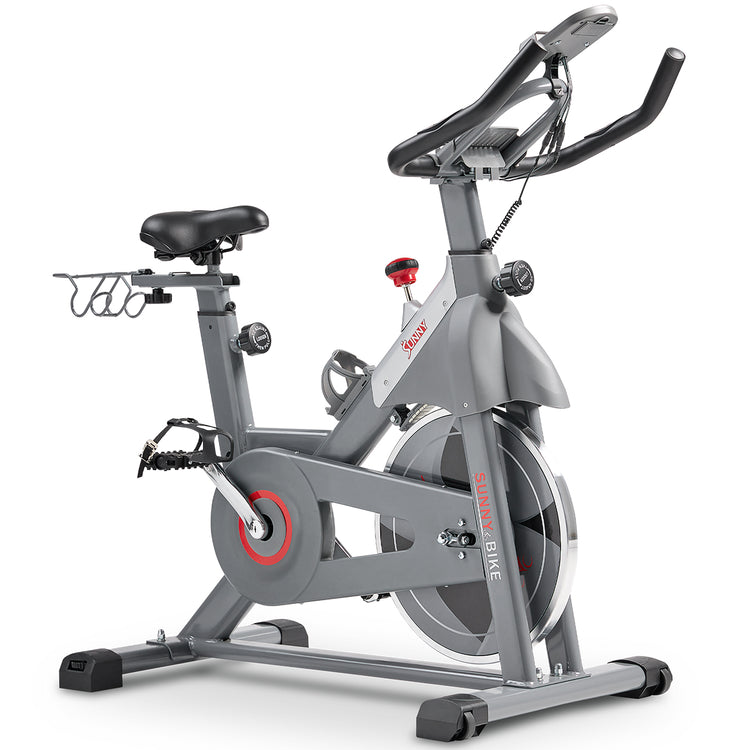Did you know that ultra-processed foods contribute to roughly 60% of the average American's diet? In today’s world, we’re constantly bombarded with information about food—what’s good for us, what’s harmful, and what we should be eating instead.
With endless advice coming from social media, news outlets, and so-called experts, it’s easy to feel overwhelmed and even confused by the conflicting messages. One area that continues to spark debate is ultra-processed foods—convenient and addictive, yet linked to a host of health concerns.
So, how do we make better choices? Let’s break down five common ultra-processed foods and explore healthier, whole-food alternatives.
What Are Ultra-Processed Foods?
Ultra-processed foods are foods that have been heavily modified from their original form through the use of industrial processes, and they typically contain ingredients that you wouldn’t normally use in your own kitchen. These ingredients often include artificial flavors, preservatives, colorings, sweeteners, and additives to enhance taste, texture, or shelf life.
In short, ultra-processed foods are made with lots of synthetic ingredients and are usually high in sugar, unhealthy fats, and sodium, while offering little to no nutritional value. Examples include things like packaged snacks, sugary drinks, fast food, and ready-to-eat meals. They are often convenient but not the most nutritious for a long, healthy life.
The five most commonly consumed ultra-processed foods to avoid are:
- Sugary Drinks (Sodas, Energy Drinks, Sweet Coffees): These drinks are packed with sugar, artificial sweeteners, and preservatives—and they give you a quick sugar rush with zero real nutrition. The issue with these sugary drinks is that they quickly become addictive and are loaded with empty calories. Amongst young people, soda is a popular beverage of choice, according to a study published by National Library of Medicine.[1] The study observed teens who drank multiple sugary drinks a day. The researchers found that when the participants stopped consuming sugary drinks for just three days, they felt worse—reporting headaches, cravings, and trouble focusing. This suggests the potentially addictive power of sugary drinks.
- Packaged Snacks (Chips, Cookies, Crackers): They're loaded with refined flour, tons of salt, fake flavors, and stuff to keep them fresh for ages. According to a study from Nutritionsource, “Snacking contributes significantly to daily calorie intake, especially among children, where it accounts for approximately 27% of their energy consumption. The concern arises when these snacks are calorie-dense and nutrient-poor, potentially leading to weight gain and nutritional deficiencies.”[2] Mindless or emotional eating can exacerbate these issues, so the importance of mindful eating practices is incredibly important.
- Fast Food (Burgers, Pizza, Fried Chicken): Fast food is full of unhealthy fats, processed carbs, artificial ingredients, and once again, it’s mostly empty calories. While fast food can be so easy on those of us with busy schedules, there’s also jam-packed studies that these fast-food chains are stealing healthy years away from us. From the National Library of Medicine, The Hidden Dangers of Fast and Processed Food discusses how consuming fast and processed foods contributes to chronic diseases and premature death.[3] It highlights that a significant portion of the American population is overweight or obese due to poor dietary habits, emphasizing the need for healthier eating to prevent lifestyle-induced illnesses. The impact on mortality alone should be enough to motivate you to think twice about that fast food run you may have been getting several times a week.
-
Breakfast Cereal: Most cereals are full of sugar, refined grains, artificial color, and preservatives. Not the healthiest way to start the day. Healthline published an article citing a study that states: “Breakfast cereals are actually the seventh biggest contributor to added sugar intake among adults in the USA.”[4] Next time you are shopping for cereal, check out the added sugar content on the label, as well as the ingredients. Many will list sugar as their 1st-3rd ingredient.
-
Processed Meats (Hot Dogs, Sausages, Deli Meats): These meats are packed with sodium, preservatives, and random additives to make them last longer – not exactly something you’d find fresh off the farm. According to an MD Anderson article, “consuming processed meats—such as bacon, hot dogs, and deli meats—can increase the risk of stomach and colorectal cancers.”[5] These meats contain substances like nitrates, which, when metabolized, form compounds that can damage DNA and promote cancer development.
What to Eat Instead
Now, the foods and studies listed mentioned here aren't meant to scare or fearmonger, but they should encourage you to make more informed choices for yourself. A healthy you is a happier and fuller version of yourself. So, enjoy these foods in moderation and treat yourself when you feel it’s necessary, but don’t rely on ultra-processed foods as your main source of energy or fuel.
Here are some alternatives to swap out for those less-than-healthy food options, that are still convenient but much healthier and nutrient-dense:
- Sugary drink alternatives: Instead of sugary drinks, try sparkling water with a splash of fresh lemon or lime for flavor. Also, with the rising popularity of Poppi and Olipop, both can be great substitutes if you are a soda lover. These drinks are packed with pre- and probiotics and contain less sugar. If you are a caffeine lover like me, opt for iced tea or cold brew coffee with a dash of any milk of your choice. Add in a half scoop of your favorite protein powder for a lower-sugar alternative to keep you energized throughout the day.
- Packaged snacks alternatives: I am a snack queen and have found some healthy options with better ingredients. Some of my favorites are RX protein bars that have simple ingredients; Chomp Sticks with grass-fed meat and high protein content; skim milk string cheese; non-fat Greek yogurt packs (such as Oikos Pro); Lesser Than Evil organic popcorn; veggies and hummus; and of course, nature’s candy–fruit. All of these are grab-and-go snacks that won’t compromise your health.
- Fast food alternatives: I get it, we need it quick and we need it now. Being “hangry” is a real thing and I won’t stand for it either. However, as a nutrition coach, the best way to drive by your favorite fast-food chain and make it to your home-cooked dinner is to prioritize high protein and fiber breakfasts, snacks, and lunches throughout your day. This helps avoid a crash at the end of the workday that makes you want to start shoving fries in your mouth. And of course prep your foods and meals at the beginning of each week. I cannot emphasize enough how important it is to have meals already cooked in your fridge for convenience to consume once you get home from a long day. If for some reason you did not have the opportunity to prep at all, stock up on ingredients you can use for a quick stir-fry using pre-chopped veggies and lean protein like chicken or tofu. For a fast pizza, opt for a whole-wheat pita or cauliflower crust topped with veggies and lean protein, I know Costco has a great cauliflower pizza I keep in my freezer for emergency dinners. For more meal prep ideas, check out my article I wrote on Meal Prep Tips for Real Results.
- Breakfast alternatives: Instead of cereal, try overnight oats or chia pudding. These can be prepared ahead of time with ingredients like oats, almond milk, chia seeds, and fresh fruit for a nutrient-packed breakfast that won’t leave you with a sugar crash. To make it even more satiating, add in protein to your oats or coffee in the morning to stay fuller for longer. I also love to prep breakfast sandwiches to freeze so I can easily heat them up in the morning before I head out. This can be a protein-packed option with turkey bacon, eggs, and cheese on a whole-grain English muffin or toast.
- Processed meat alternatives: Opt for grilled chicken breast, wild-caught salmon, or plant-based protein options like tofu or tempeh. Most of these meats can even be put into tortillas with tomato and lettuce if you want more of a crunch and a grab-and-go option. If you're craving a sandwich, swap out deli meats for shredded chicken, sliced avocado, or natural nut butters on whole-grain bread.
In conclusion, while ultra-processed foods are super convenient, they are low on the healthy scale, and full of ingredients that are more about shelf life than actual nutrients. Start by swapping just one of these processed foods a week for something fresher, and watch how your energy and mood improve!


























Add Your Name & Email
Please enter your name and email to continue.We won’t display your email publicly.
1 comment
I LOVE SUNNY!!!! My bike AND ALL THE INFORMATION YOU PROVIDE!
thANK yoU.